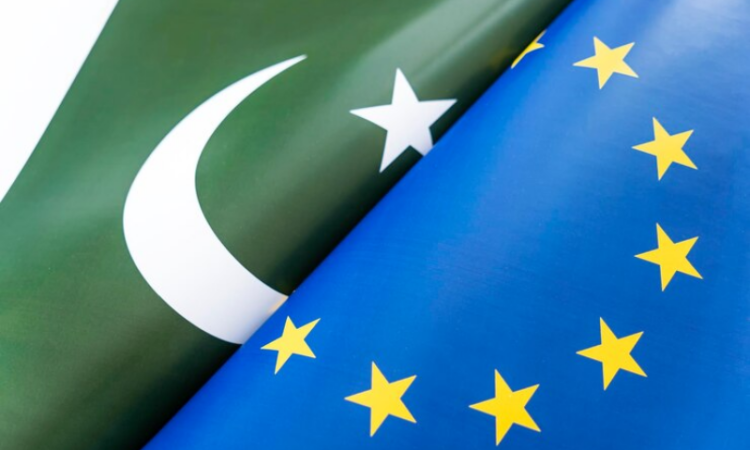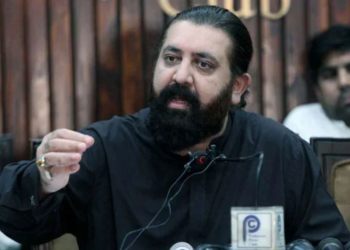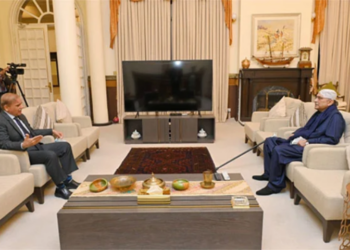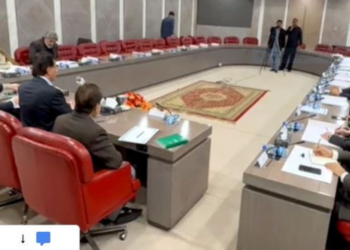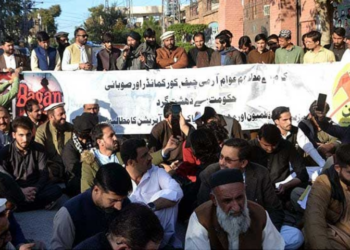Islamabad, December 13, 2024: The 14th Pakistan-European Union (EU) Joint Commission convened on November 21, 2024, in Islamabad, marking a significant milestone in the bilateral relationship between Pakistan and the EU. Discussions encompassed recent political developments, including Pakistan’s parliamentary elections held on February 8, 2024, and the European Parliament elections from June 6-9, as well as the formation of the new College of Commissioners.
Both sides reaffirmed the importance of sustained cooperation in areas such as trade, migration, human rights, political and economic development, and addressing global challenges like food security, energy transition, and climate change under the EU’s Global Gateway strategy.
Democracy, governance, rule of law, and human rights
On November 19, 2024, the Sub-Group on Democracy, Governance, Rule of Law, and Human Rights met ahead of the Joint Commission. The meeting, co-chaired by representatives from Pakistan’s Ministry of Foreign Affairs and the European External Action Service, focused on strengthening electoral processes post-elections in both Pakistan and the EU.
The EU emphasized democratic values, political pluralism, judicial independence, and freedom of expression while underscoring concerns about disinformation. Pakistan presented its reform agenda, including the National Action Plans on Human Rights and Business and Human Rights, and reiterated its commitment to the 27 international conventions linked to GSP+ compliance. Both sides also discussed freedom of religion, minority rights, and combating anti-Muslim hatred.
The EU reiterated its opposition to the death penalty and called for reforms in Pakistan’s mercy petition process.
Trade and economic cooperation
On November 20, 2024, the Sub-Group on Trade convened to discuss bilateral trade under the GSP+ framework. The EU remains Pakistan’s second-largest trading partner, with GSP+ significantly enhancing trade volumes since 2014. The meeting addressed market access challenges, compliance with EU regulatory frameworks, and multilateral developments, including WTO reforms.
Pakistan appreciated the EU’s continued support for sustainable growth, while both sides committed to fostering trade development and aligning with the EU’s regulatory landscape.
Development cooperation
The Sub-Group on Development Cooperation also met on November 20, 2024, to review key priorities under the Multi-Annual Indicative Programme (MIP). The three focal areas—Green Inclusive Growth, Human Capital Development (TVET), and Governance—align with Pakistan’s National Development Agenda.
Pakistan welcomed the EU’s continued support for its Resilient Recovery, Rehabilitation, and Reconstruction Framework (4RF) and engagement under the Global Gateway initiative. Discussions included enhancing green energy projects and identifying new investment opportunities.
Broader bilateral cooperation
Both Pakistan and the EU reaffirmed their commitment to the Strategic Engagement Plan (SEP) signed in 2019. Discussions covered migration and mobility, including the Pakistan-EU Talent Partnership and the Joint Readmission Agreement. The EU acknowledged Pakistan’s generosity in hosting Afghan refugees and reiterated its support for the Solution Strategy for Afghan Refugees (SSAR).
In addition, Pakistan voiced concerns over human rights violations in Jammu and Kashmir and called for an immediate ceasefire in Gaza. The EU echoed calls for a ceasefire in Gaza, the release of hostages, and humanitarian access, alongside reiterating its stance on Russia’s war in Ukraine.
Future engagement
The Joint Commission, co-chaired by Dr. Kazim Niaz, Secretary of the Ministry of Economic Affairs, and Ms. Paola Pampaloni, Deputy Managing Director for Asia and the Pacific of the European External Action Service, agreed to hold its next session in Brussels in 2025.



